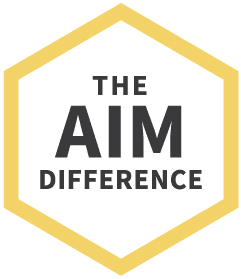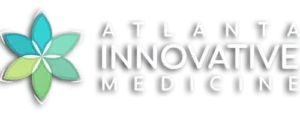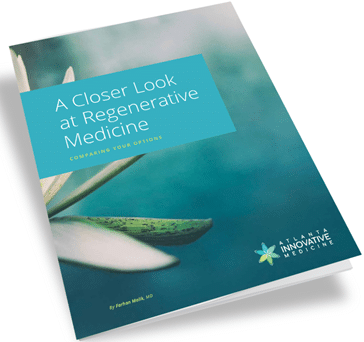By Farhan Malik, MD
Atlanta Innovative Medicine
Vitamin C, or ascorbic acid, has long been recognized as one of the body’s most essential factors for immune function and overall health and wellbeing—with vitamin C deficiencies being linked to all kinds of issues from fatigue and depression to anemia. This is why the rise of IV vitamin therapy—which has emerged as a safe and remarkably effective means of replenishing essential nutrients—is not just an elite wellness trend but a sustainable solution to managing all kinds of chronic illnesses, infections, and metabolic imbalances.
In this blog, we’ll discuss how IV therapy has evolved into a versatile and accessible method of vitamin replenishment, diving into the particularly stark benefits of the high-dose vitamin C IV for managing chronic symptoms, dispelling infections, and maintaining vitality.

The Use of IV Vitamin Therapy for Health.
Intravenous (IV) vitamin therapy is an alternative to oral supplementation. It bypasses the digestive system, and instead administers essential vitamins and minerals directly into the bloodstream. The nutrients replenished via IV therapy vary widely, but they are naturally occurring and can be measured for a safe and healthy dosage. Some of the most common IV nutrients include B vitamins, magnesium, calcium, and of course, vitamin C.
With a wide range of powerfully restorative benefits, IV vitamin therapy has been shown to alleviate symptoms and improve quality of life for individuals experiencing chronic illnesses, such as:
- Inflammatory arthritis
- Chronic fatigue syndrome
- Fibromyalgia
- Diabetes
- Asthma
- Depression
- Anxiety
- Lyme disease
Plus, IV vitamin therapy has become an established means of preventative care and general wellness maintenance, helping many folks to:
- Manage allergies
- Recover from hangovers
- Treat fatigue
- Minimize cold and flu symptoms
- Limit oxidative stress in prevention of serious health conditions
In addition to restoring and balancing vital nutrients, IV vitamin therapy offers the benefit of hydration by delivering vitamins via a hydrating solution, like saline or lactated ringers. At Atlanta Innovative Medicine, we use lactated ringers because it more closely mimics the composition of the body’s blood—containing sodium chloride, sodium lactate, potassium chloride, and electrolytes like sodium, potassium, and calcium chloride—to most effectively hydrate and replenish the body. By rapidly restoring lost fluids and electrolytes, IV vitamin therapy acts as a highly effective treatment for patients who are recovering from an acute illness, overexertion, or excessive heat exposure.

What Are The Health Benefits of IV Vitamin C?
As an essential nutrient, Vitamin C plays a vital and multifaceted role in the maintenance of overall health, contributing substantially to immune function; biochemical metabolism; and the formation of blood vessels, cartilage, muscles, and collagen.
At the root of these functions are powerful healing properties that can be maximized through IV vitamin C drips and leveraged to repair, restore, and revitalize the body in a myriad of ways.
Vitamin C is an Antioxidant.
As a potent antioxidant, vitamin C helps shield the body from free radicals—highly reactive molecules that can damage cells, proteins, and DNA—and prevent oxidative stress, which has been linked to several serious diseases, including dementia, heart disease, autoimmune conditions, arthritis, diabetes, and cancer.
By defending against free radicals, vitamin C safeguards collagen from oxidative damage, not only maintaining tissue integrity and supporting efficient wound healing, but also sustaining healthy, youthful skin.
Vitamin C Strengthens Immunity.
By protecting white blood cells, which are the body’s frontline defenders against infections, vitamin C plays a vital role in strengthening the body’s immunity. Vitamin C boosts white blood cell activity, making the immune system more efficient at identifying and engulfing harmful pathogens.
Additionally, vitamin C promotes the proliferation and activation of immune cells—such as T and B cells—and influences the release of cytokines. The result is a more robust defense against infections, with shortened recovery times and reduced risk of complications.
Vitamin C Supports Hormone Synthesis.
Cortisol is a hormone that plays a crucial role in managing stress, inflammation, and immune function, and without sufficient vitamin C, the body’s ability to produce cortisol can be compromised, impacting stress response and overall health.
Moreover, vitamin C acts as a valuable cofactor for a range of enzymes involved in energy metabolism, as well as enzymes responsible for the growth of robust and stable collagen fibers. This, in turn, supports overall tissue integrity and accelerates wound healing. By promoting the synthesis of collagen, vitamin C drips act as an antiaging therapy, contributing to healthy, youthful, and vibrant skin.
Vitamin C Enables Neurotransmitter Synthesis.
Vitamin C has been shown to help synthesize norepinephrine—one of the most important neurotransmitters in maintaining mental alertness, sustaining energy, and regulating mood. Vitamin C also plays a role in the synthesis of catecholamines, or stress hormones, which are important for managing stress and anxiety. With its significant impact on neurotransmitters and stress hormones, a vitamin C IV drip can support stress management and improve mental wellbeing.
Vitamin C has Anti-inflammatory Properties.
Vitamin C is a natural antihistamine whose antiinflammatory properties help mitigate the excessive inflammatory response that often accompanies allergies, making vitamin C drips popular for alleviating symptoms like redness, swelling, and itching.
Vitamin C Facilitates Iron Absorption.
Iron is essential for regulating hemoglobin levels, which are responsible for transporting oxygen in the blood and producing energy. A deficiency in iron, often referred to as IDA, can cause early growth and cognitive issues, restless legs syndrome, fatigue, and reduced productivity.
Studies show that vitamin C boosts hemoglobin levels, even when ferritin levels decrease, improving the body’s absorption of nonheme iron. This makes IV therapy vitamin C a potent tool in fighting fatigue and increasing energy levels, especially for individuals with iron deficiency or anemia.

Comparing The Effects Of Oral and Intravenous Vitamin C Administration.
IV vitamin therapy emerged as a way to amplify the benefits of vitamin C that can’t be obtained through oral supplementation. When taken orally, vitamin C has to pass through the digestive tract and cannot be fully absorbed by the body. When delivered intravenously, vitamins C bypasses this barrier, directly entering the bloodstream for full absorption. Additionally, because it’s so rapidly absorbed through the bloodstream, its benefits take effect much more quickly.
Another significant benefit of IV vitamin C is that it can be safely administered at a much higher dosage. While the maximum daily dosage for oral vitamin C is 2 grams, a vitamin C IV drip typically starts at 15 grams and can be dosed as high as 100 grams.
When administered via IV, these higher dosages are safe and healthy, though it is very important that dosage be tailored and carefully monitored by your doctor. At AIM, we start with a low dose and titrate up based on additional testing to ensure the treatment is safe and effective for each patient.
While oral vitamin C can be as strong as 2 grams, these higher doses are known to bring about side effects, such as abdominal cramping and diarrhea. Again, because IV administration does not rely on the digestive system, this common side effect can be avoided.

Subscribe for Expert Insights and Our Ebook
A Closer Look at Regenerative Medicine: Comparing Your Options Learn about treatment options like Platelet Rich Plasma (PRP), Prolozone Therapy, and Stem Cell Therapy.

The Use of IV Vitamin C in Cancer Therapy
Mounting research is revealing high-dose vitamin C IV as a powerful supporting therapy in cancer treatment, indicating its potential to both alleviate symptoms in cancer patients and decelerate the advancement of various cancer cells, including prostate, pancreatic, hepatocellular, colon, mesothelioma, and neuroblastoma.
By helping to reduce the toxicities associated with chemotherapy and radiation, IV vitamin C for cancer has been shown to contribute to a more tolerable and manageable treatment for patients. In one study that observed 125 breast cancer patients undergoing standard tumor therapy, there was a significant decrease in side effects—like nausea, loss of appetite, fatigue, depression, sleep disorders, and dizziness—among patients who received adjuvant IV therapy vitamin C, as opposed to those who did not.
Numerous preclinical studies and clinical trials have shown that a high-dose vitamin C IV yields antiproliferative effects that can inhibit tumor growth and increase the effectiveness of other cytotoxic agents to increase cancer cells’ sensitivity to treatment.
One reason for this synergy between high-dose vitamin C and other cytotoxic agents is that, when administered at high doses, ascorbic acid undergoes a shift in biochemical behavior, acting as a pro-oxidant, rather than an anti-oxidant within the tumor microenvironment:
When it surpasses its physiological levels in the bloodstream, excess ascorbic acid reacts with metals, which are commonly found in the tumor microenvironment, to generate hydrogen peroxide—a potent and highly reactive oxidizing agent which selectively damages and kills cancer cells through oxidative damage.

How Often Should You Get Vitamin C IV Therapy?
The ideal frequency of vitamin C IV treatments depends on several factors, including the patients’ specific set of health concerns, medical conditions, and overall health history. While there is no one-size-fits-all regimen, and should be tailored to each person, it is typical for patients seeking general wellness and preventive care to receive a vitamin C IV drip once every two to four weeks.
For patients managing chronic illness or actively fighting an infection, this might increase to once a week; and for patients challenged by more aggressive illness like cancer, the frequency may be even higher, ranging from one to three times per week.
Regardless of your specific needs, it’s essential to consult with a healthcare professional who can tailor the treatment frequency and IV dosage to your unique health goals and monitor your progress closely to ensure your safety and optimal benefit throughout the process.
From managing chronic illnesses and reinforcing the immune system to promoting general wellbeing and hydration, vitamin C IV therapy has and continues to advance as a versatile, safe, and effective treatment for those seeking to enhance their health and quality of life.
Schedule an IV Therapy Visit with Atlanta Innovative Medicine Today!
If you’re eager to start your journey toward improved wellness, look no further than Atlanta Innovative Medicine! Our team of experts specialize in intravenous therapies, including vitamin C, Myers’ Cocktail, and ozone IV therapies.
With an emphasis on personalized care and innovative solutions, our treatments are always designed to meet your unique health needs. Using only the highest-quality substances and most advanced techniques, our IV vitamin therapy is completely safe, not to mention convenient and painless.
Depending on the specific dose and treatment plan, IV sessions typically range from 30 minutes to two hours; and most of our clients find the experience not only painless but also deeply relaxing and rejuvenating in our state-of-the-art facility.
Don’t wait to take charge of your health and well-being. Contact Atlanta Innovative Medicine today and discover the benefits of IV vitamin therapy for yourself.
Call 770.416.9995 or click the button below to schedule your appointment with AIM today.
Quizzes
Are you a candidate for Regenerative Medicine?
Regenerative medicine can be an effective therapy and treatment option for lasting pain relief for a variety of conditions like osteoarthritis of the knee, hip or shoulder; ACL or meniscus tears; tennis or golfer’s elbow; chronic neck and back pain; and more.
Is it right for you and your condition? Take 1 minute to answer a few “yes or no” questions that help to assess if you might be a candidate for PRP, stem cell or other nonsurgical regenerative treatments.
Are You a Stem Cell Candidate for Your Joint or Spine Damage?
Are you a candidate for Platelet Rich Plasma (PRP) Therapy?
Do I have nonsurgical options for my injured or aging joints?
Take the Pain Medications Risk Quiz

Regenerative Medicine.
Reimagined
- Advanced hybrid therapies, including Mesenchymal Stem Cell therapy combined with different mechanisms of action that synergistically come together to support ultimate healing
- More powerful PRP that’s customized, amplified and personalized
- Therapies delivered by an experienced, compassionate team comprised of multidisciplinary experts in traditional and alternative medicine working as your team: Medical Doctors, Nurse Practitioners, Physiotherapists and Chiropractors
- Advanced training through the American Academy of Orthopedic Medicine, the American Osteopathic Association of Prolotherapy Regenerative Medicine, and more
All content of this page is for informational purposes only and is not intended to serve as a substitute for the consultation, diagnosis, and/or medical treatment of a qualified physician or healthcare provider. Individual results may vary. Your medical professional can explain all the risks and potential benefits of any therapy based on your specific circumstances. At this time regenerative therapies are not FDA approved. Neither Atlanta Innovative Medicine nor its physician affiliates promise regenerative therapies as a cure for any condition, disease, or injury.
Other Atlanta Areas We Service:
© 2024 Atlanta Innovative Medicine, LLC. All Rights Reserved. AIM Scholarship Opportunity








